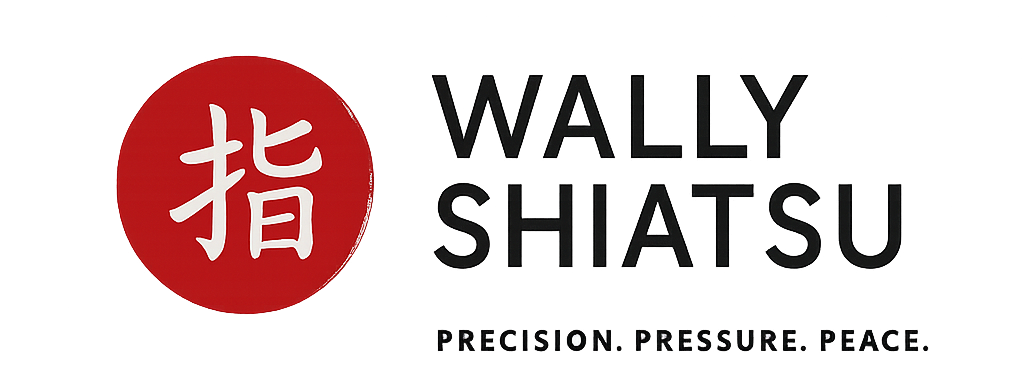Listen to the article
The Role of Continuing Education in Massage Therapy
Understanding Certification Renewal for Massage Therapists
Certification renewal is a crucial part of a massage therapist’s career. Every few years, they must renew their certification to practice legally. This process often requires completing a certain number of continuing education hours. These hours can come from various sources such as workshops, seminars, or online courses.
Here’s a simple breakdown of the certification renewal process:
| Step | Description |
|---|---|
| Check Requirements | Each state has its own rules for renewal. Therapists should check their state board’s website. |
| Complete CE Hours | Therapists must complete the required hours of continuing education. |
| Submit Application | After completing the hours, they can submit their renewal application. |
| Pay Fees | There is usually a fee associated with the renewal process. |
Staying updated with these requirements helps therapists maintain their skills and knowledge in the field.
The Impact of Ongoing Education on Professional Development
Ongoing education plays a vital role in a massage therapist’s growth. It allows them to learn new techniques, understand the latest research, and adapt to changing client needs. For instance, a therapist who takes a course on sports massage can better assist athletes in recovery.
By continually learning, therapists can:
- Enhance Skills: Mastering new techniques can set them apart from others.
- Increase Client Satisfaction: Knowledgeable therapists can offer better services.
- Boost Confidence: Feeling informed can help therapists feel more confident in their practice.
Why Certification Renewal Matters for Massage Therapists
Certification renewal is not just a formality; it carries significant weight in a therapist’s career. It reflects their commitment to professionalism and ongoing learning. Clients often look for certified therapists, as it assures them of a certain level of expertise and safety.
Additionally, the importance of continuing education for certified massage therapists cannot be overstated. It helps them stay competitive in a crowded field and opens up opportunities for advancement, such as specializing in areas like prenatal massage or deep tissue therapy. Understanding various types of massage, such as the main types of massage, can further enhance their practice.
Advanced Techniques in Massage Therapy
Exploring New Methods through Continuing Education
Continuing education is crucial for certified massage therapists. It opens doors to new techniques and methods that enhance their skills. By attending workshops, seminars, and courses, they can learn about the latest advancements in massage therapy. This ongoing learning process helps them stay updated and improve their practice.
For example, a therapist who learns about myofascial release can offer clients a treatment that targets deep tissue issues. This not only diversifies their skill set but also attracts more clients, showcasing the variety of techniques available.
Benefits of Learning Advanced Massage Therapy Techniques
There are numerous benefits to learning advanced massage therapy techniques, including:
- Improved Patient Outcomes: Advanced techniques can lead to better recovery times and pain relief.
- Increased Client Satisfaction: Clients appreciate therapists who can provide effective and tailored treatments.
- Career Growth: Therapists with advanced skills are often in higher demand and can command better pay.
| Benefit | Description |
|---|---|
| Improved Patient Outcomes | Faster recovery and pain relief |
| Increased Client Satisfaction | Enhanced treatment experiences |
| Career Growth | Higher demand and better salary opportunities |
How Advanced Techniques Enhance Patient Care
Advanced techniques play a significant role in enhancing patient care. They allow therapists to address specific issues with precision. For instance, a therapist trained in trigger point therapy can target muscle knots effectively, providing relief that basic techniques might not achieve.
Moreover, these techniques help therapists understand their clients better. They can identify underlying issues and customize treatments accordingly. This personalized approach builds trust and fosters long-term relationships with clients, ultimately enhancing the overall benefits of massage therapy.
Workshops and Training Opportunities
Finding Relevant Massage Therapy Workshops
Massage therapists often seek workshops that align with their professional growth. They can find these opportunities through various channels. Local massage schools, professional associations, and online platforms are great resources. Attending conferences and seminars also helps therapists discover workshops that suit their interests.
Here are some places to look for workshops:
- Massage Schools: Many schools offer workshops for their students and alumni.
- Professional Associations: Organizations like the American Massage Therapy Association (AMTA) provide listings of events.
- Social Media: Platforms like Facebook and LinkedIn can connect therapists with upcoming events.
- Online Learning Platforms: Websites such as Udemy or Coursera offer virtual workshops.
The Value of Health and Wellness Training for Therapists
Health and wellness training is crucial for massage therapists. It helps them stay updated on new techniques and trends in the field. This training enhances their ability to care for clients. Therapists who engage in ongoing education can provide better service, leading to improved client satisfaction.
Here’s why this training is essential:
- Improved Skills: Therapists learn new techniques that can benefit their clients.
- Increased Knowledge: They gain insights into health and wellness trends.
- Networking Opportunities: Workshops allow therapists to connect with peers and experts.
Meeting Industry Standards
Importance of Adhering to Industry Standards in Massage Therapy
In the field of massage therapy, adhering to industry standards is essential. These standards not only protect clients but also enhance the professional reputation of therapists. When therapists follow these guidelines, they show their commitment to quality care and safety. This commitment can lead to more clients and better outcomes.
How Continuing Education Helps Meet Regulatory Requirements
Continuing education plays a critical role in helping massage therapists meet regulatory requirements. Many states require therapists to complete a certain number of hours in continuing education to maintain their licenses. This ongoing education keeps therapists updated on new techniques, safety protocols, and best practices.
| Benefits of Continuing Education | Examples |
|---|---|
| Keeps Knowledge Current | Workshops on new techniques |
| Enhances Skills | Courses on advanced modalities |
| Meets Licensing Requirements | Required CEU hours for renewal |
Benefits of Ongoing Education for Therapists
Enhancing Skills through Continuing Education
For massage therapists, the importance of continuing education for certified massage therapists cannot be overstated. Ongoing education allows them to refine their skills and learn new techniques. This is essential in a field that is always changing. Therapists can attend workshops, online courses, or conferences to gain fresh insights.
Here are some key benefits:
- New Techniques: Learning about the latest methods can help therapists offer better services.
- Specializations: They can focus on areas like sports massage or prenatal care, broadening their expertise.
- Networking: Meeting other professionals can lead to valuable connections and opportunities.
The Positive Effects of Education on Therapist Confidence
Education plays a crucial role in boosting a therapist’s confidence. When they gain new knowledge, they feel more prepared to handle various situations. This confidence can be felt by clients, leading to a more positive experience.
Consider this: a therapist who has updated their skills is likely to approach each session with a sense of assurance. This not only benefits the therapist but also enhances the client’s trust and comfort level.
How Education Leads to Better Patient Outcomes
Education does not just benefit therapists; it also greatly impacts patient outcomes. When therapists are well-trained and informed, clients receive better care. Here’s how education translates to improved results:
| Education Aspect | Impact on Patient Outcomes |
|---|---|
| Advanced Techniques | More effective treatments |
| Updated Knowledge | Better understanding of conditions |
| Specialized Training | Tailored approaches for specific needs |
When therapists commit to ongoing education, they are investing in their clients’ health and well-being. This creates a cycle of improvement—better skills lead to better care, which results in happier, healthier clients.
The Future of Massage Therapy Education
Trends in Continuing Education for Massage Therapists
The landscape of massage therapy education is shifting. Therapists are now embracing continuing education as a vital part of their careers. Many are opting for online courses, which provide flexibility and accessibility. This trend allows therapists to learn at their own pace while balancing their busy schedules.
Additionally, there’s a growing focus on specialized training. Areas like sports massage, neuromuscular therapy, and aromatherapy are becoming popular. Therapists are not just broadening their skill sets; they are also enhancing their marketability, as seen in the benefits of relaxation techniques.
| Trend | Description |
|---|---|
| Online Learning | Flexible courses accessible from anywhere. |
| Specialization | Focus on niche areas to attract specific clients. |
| Holistic Approaches | Integrating wellness practices into massage therapy. |
The Importance of Staying Updated with Industry Changes
Staying informed about industry changes is crucial for massage therapists. New techniques, tools, and research can dramatically impact practices. By keeping current, therapists can provide the best care possible.
For example, awareness of the latest health regulations and client preferences can help therapists adapt their services. This not only improves client satisfaction but also builds trust and loyalty.
Preparing for the Future through Ongoing Learning
Ongoing learning is the backbone of a successful massage therapy career. Therapists should actively seek opportunities to expand their knowledge. This could mean attending workshops, participating in webinars, or reading industry publications available on relevant blogs.
Here are some effective strategies for ongoing learning:
- Join Professional Organizations: These groups often provide resources and networking opportunities.
- Attend Conferences: Conferences offer exposure to new techniques and industry leaders.
- Engage with Peers: Collaborating with other therapists can spark new ideas and insights.


